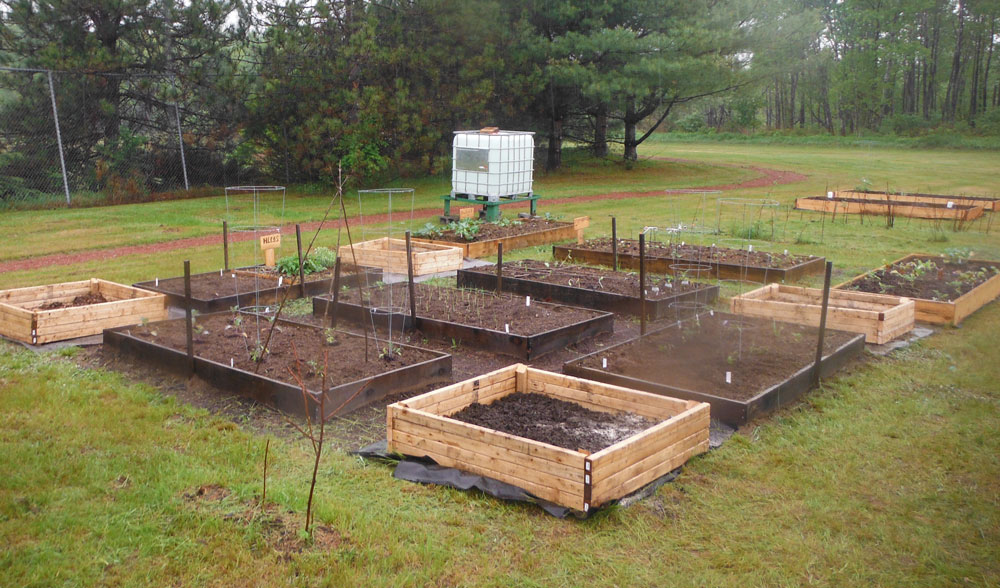Community Garden Guidelines in the Time of Social Distancing

Community Gardens are considered an essential agricultural activity by the state of Maine and many residents rely on the food they grow in their garden plot(s) in order to feed themselves and their families. But, at this time Master Gardener Volunteers may not volunteer in ANY capacity at a Community Garden site until further notice. Therefore, UMaine Extension Home Horticulture staff suggests these Best Management practices and resources for Community Garden coordinators and committees during COVID-19. Providing this kind of support is fully compatible with our mission of education and research-based information. We encourage you to connect with your local UMaine Extension office for guidance specific to your Community Garden situation through phone, email, or virtual tools.
All this information is based on CDC Guidelines.
Who should be in the garden?
- It is highly recommended that all at-risk individuals (65+ years of age and/or with underlying health conditions) take the season off from community gardening.
- It is highly recommended that individuals who don’t rely on the produce they grow in their plot as their primary food source take the season off from community gardening. Consider purchasing a share in a CSA to support a local farmer and donating your plot space to grow food for the community.
- Require all gardeners who are sick or may have come in contact with COVID-19 to self-quarantine.
- Delay opening the garden for the season as long as possible as the situation changes daily. This is the wettest spring in 15 years so you are not as far behind as you think.
- Set a maximum number of community gardeners who can be in the space at the same time; this number should be based first on the size of the garden and then on the number of plot holders.
- Mark off 6-foot intervals in naturally congested areas of the garden such as water sources, compost pile garden gates, etc.
- Discourage bringing children or the whole family to the garden at once. Unlike in other years, the garden should not become a gathering place.
- The general public should not enter the garden at any time (post signs at every entrance).
What changes should be done in the actual garden?
- Close the garden shed and cut off access to shared tools until further notice. Have gardeners bring their own tools.
- If gardeners do not have their own tools, allow them to borrow tools for the entire season. They need to bring and take them home each time they leave the garden.
- Set up a handwashing station (YouTube) and encourage all gardeners to wash their hands (YouTube) upon their arrival and departure. Provide a disinfectant solution (PDF) that can be safely stored outside.
- Require all gardeners to disinfect anything they touch before and after use especially gates, wheelbarrow, mowers, or other large tools.
- Consider solarizing, cover cropping, or other different uses of parts of the garden to build soil resources for later in the season.
How to best handle the routine duties of a garden through the season.
- Cancel all workdays and schedule tasks to be completed independently by the community gardeners.
- Consider concentrating on direct-seeded crops and succession planting to spread out garden activity.
- Use the preseason time to create signs about the changes: lots and lots of signs.
- Reduce the number of people involved with harvesting produce for the local food pantry (i.e., delegate one or two people for the entire season).
- Provide special food handling guidelines to anyone harvesting produce for the local food pantry.
- Create a COVID-19 amendment to the Community Garden rules and require that all participating gardeners sign off on these rules electronically through an email or online form.
